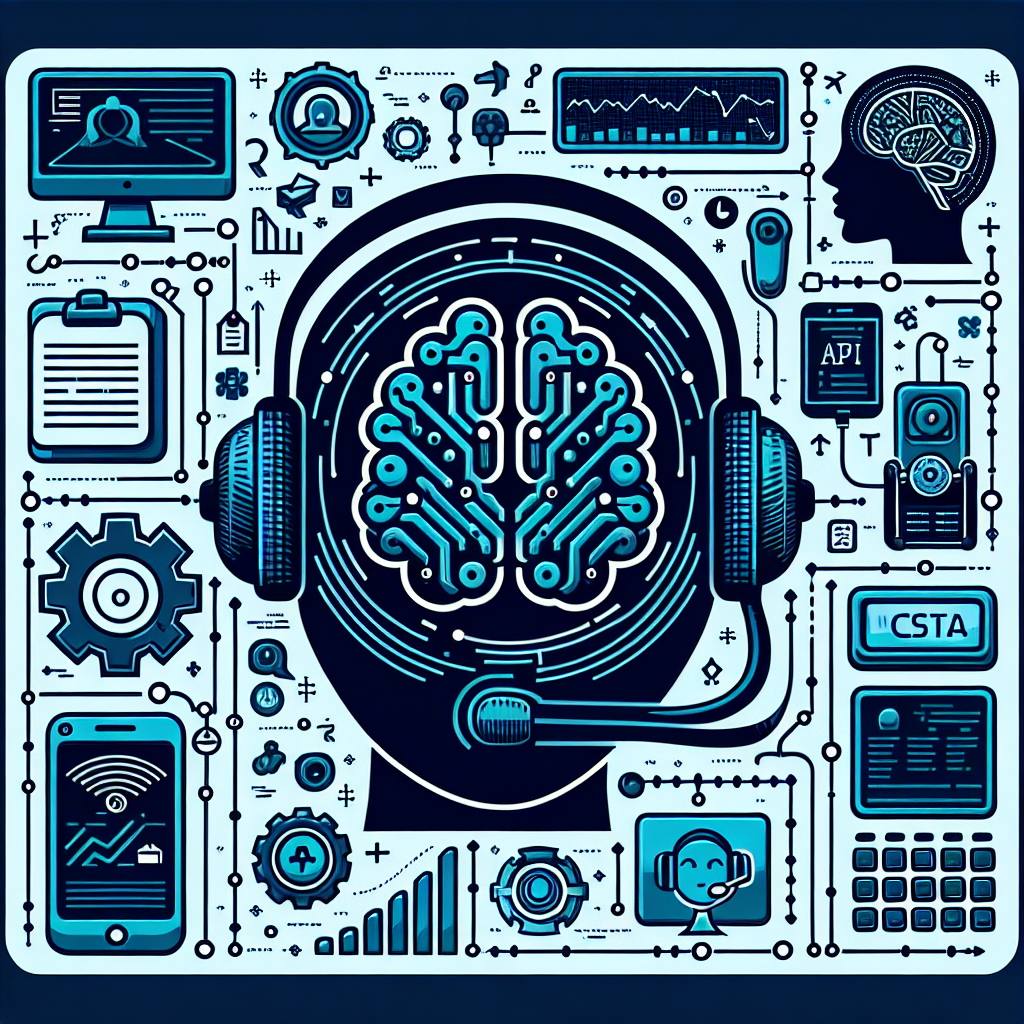The Impact of AI Development on Customer Service
Artificial Intelligence (AI) has revolutionized many industries in recent years, and one area where its impact is particularly significant is customer service. AI technologies are transforming the way businesses interact with their customers, providing faster, more efficient, and more personalized service than ever before. In this article, we will explore the impact of AI development on customer service and how businesses can leverage these technologies to improve their customer experiences.
1. Chatbots and Virtual Assistants
One of the most common applications of AI in customer service is the use of chatbots and virtual assistants. These AI-powered tools can handle a wide range of customer inquiries, from answering simple questions to providing personalized recommendations based on customer preferences. Chatbots have become increasingly sophisticated in recent years, thanks to advances in natural language processing and machine learning algorithms.
By using chatbots, businesses can provide round-the-clock customer support, streamline their customer service operations, and reduce the need for human agents to handle routine inquiries. This not only improves the efficiency of customer service but also frees up human agents to focus on more complex or high-value tasks.
2. Personalization and Customer Insights
AI technologies also play a crucial role in personalizing the customer experience. By analyzing customer data and behavior, businesses can use AI algorithms to deliver personalized recommendations, offers, and content to individual customers. This level of personalization not only enhances the customer experience but also increases customer loyalty and engagement.
AI also enables businesses to gain valuable insights into customer preferences, behaviors, and trends. By analyzing customer data at scale, businesses can identify patterns and trends that would be difficult or impossible to detect manually. These insights can help businesses improve their products and services, tailor their marketing strategies, and make data-driven decisions to better serve their customers.
3. Predictive Analytics and Customer Service
Another key impact of AI on customer service is the use of predictive analytics. By analyzing historical data and customer interactions, AI algorithms can predict future customer behavior, preferences, and needs. This enables businesses to anticipate customer inquiries, proactively address issues before they escalate, and provide more personalized and proactive customer service.
Predictive analytics can also help businesses identify opportunities for cross-selling or upselling, target customers with relevant offers and promotions, and optimize their customer service operations to improve efficiency and effectiveness. By leveraging predictive analytics, businesses can deliver a more proactive and personalized customer experience that drives customer satisfaction and loyalty.
4. Automation and Self-Service
AI technologies have also enabled businesses to automate many aspects of customer service, including ticket routing, issue resolution, and feedback collection. By automating routine tasks and processes, businesses can provide faster and more efficient service to customers, reduce wait times, and improve overall customer satisfaction.
Self-service options powered by AI, such as knowledge bases, FAQs, and automated troubleshooting tools, empower customers to find answers to their questions and resolve issues on their own. This not only reduces the burden on human agents but also gives customers greater control over their interactions with businesses, leading to higher levels of satisfaction and loyalty.
5. Challenges and Considerations
While the impact of AI on customer service is largely positive, there are some challenges and considerations that businesses must address when implementing AI technologies. One of the main challenges is ensuring that AI-powered tools are accurate, reliable, and able to handle a wide range of customer inquiries effectively. Businesses must invest in training and testing AI algorithms to ensure that they provide accurate and relevant responses to customer inquiries.
Another consideration is the potential impact of AI on human agents. While AI technologies can improve efficiency and streamline customer service operations, they can also lead to job displacement for human agents who may be replaced by AI-powered tools. Businesses must carefully consider the implications of AI on their workforce and provide training and support to help employees adapt to the changing landscape of customer service.
FAQs
Q: How can businesses leverage AI to improve customer service?
A: Businesses can leverage AI technologies such as chatbots, virtual assistants, predictive analytics, and automation to provide faster, more personalized, and more efficient customer service. By analyzing customer data, predicting customer behavior, and automating routine tasks, businesses can enhance the customer experience and drive customer satisfaction and loyalty.
Q: What are the benefits of using AI in customer service?
A: The benefits of using AI in customer service include improved efficiency, faster response times, personalized interactions, proactive customer service, and valuable customer insights. AI technologies enable businesses to provide round-the-clock support, analyze customer data at scale, predict customer behavior, and automate routine tasks to deliver a seamless and personalized customer experience.
Q: What are the challenges of implementing AI in customer service?
A: Some of the challenges of implementing AI in customer service include ensuring the accuracy and reliability of AI-powered tools, addressing job displacement for human agents, and providing training and support for employees to adapt to the changing landscape of customer service. Businesses must invest in testing, training, and monitoring AI algorithms to ensure that they provide accurate and relevant responses to customer inquiries.
In conclusion, the impact of AI development on customer service is profound, enabling businesses to provide faster, more personalized, and more efficient service to their customers. By leveraging AI technologies such as chatbots, predictive analytics, and automation, businesses can streamline their customer service operations, deliver proactive and personalized interactions, and gain valuable insights into customer behavior and preferences. While there are challenges and considerations to address, the benefits of using AI in customer service far outweigh the risks, allowing businesses to stay ahead of the competition and drive customer satisfaction and loyalty.

